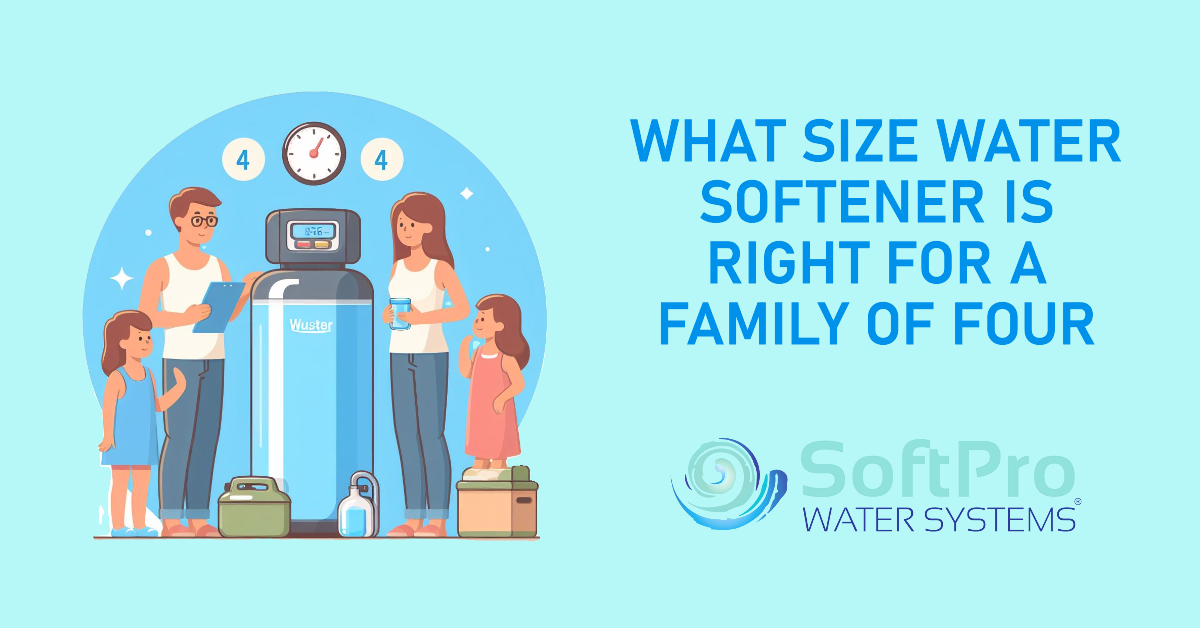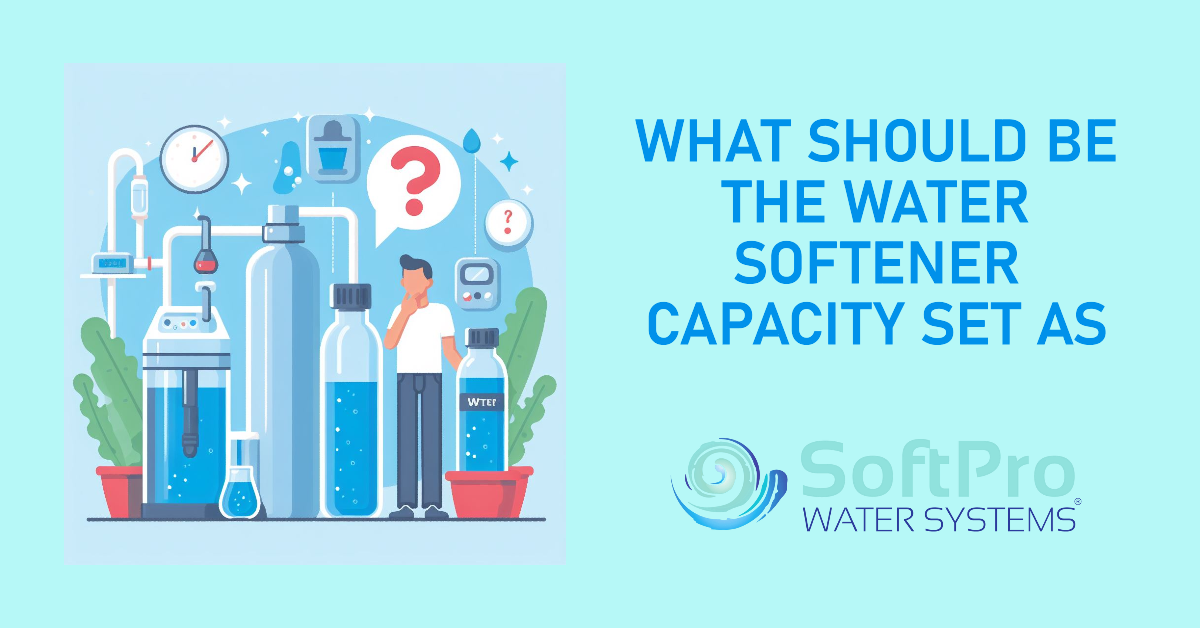Is It Ok to Oversize a Water Softener?
Table of Contents
It is generally not recommended to significantly oversize a water softener. While larger systems can handle higher water hardness levels, they also lead to less frequent regeneration cycles. This can create issues like inefficient salt and water usage, potential mineral buildup on the resin, and the possibility of stagnant water in the tank. Let's dive into the details.
What is a Water Softener?
Water softeners, also used for water conditioning, are appliances that remove hardness minerals, primarily calcium and magnesium, from your water supply. This is done through a process called ion exchange, where the hardness minerals are replaced with sodium ions. Softened water helps prevent limescale buildup, improves soap lathering, and can extend the lifespan of appliances.
How to Calculate Water Softener Size
To determine the correct size for your water softener, you need two key pieces of information:
✓ Water Hardness: Measured in grains per gallon (GPG), water hardness varies by location. A water test will determine your GPG.
✓ Daily Water Usage: Estimate your household's average daily water use in gallons.
Multiply your water hardness (GPG) by your daily water usage. Then, divide by the softener's capacity (in grains) to estimate how often it will regenerate.
Example:
✓ Water Hardness: 15 GPG
✓ Daily Usage: 300 gallons
✓ Softener Capacity: 30,000 grains
Calculation: 15 GPG * 300 gallons/day = 4500 grains of hardness removed daily 30,000 grain capacity / 4500 grains/day = Regeneration every 6-7 days.
Consequences of Oversizing a Water Softener
✓ Infrequent Regeneration: Oversized softeners regenerate less often, which can lead to stagnant water and reduced efficiency.
✓ Channeling: Infrequent regeneration can allow water to form channels through the resin bed, decreasing the system's ability to fully soften water.
✓ Inefficiency: While using somewhat less salt and water per gallon softened, a larger system ultimately uses more over time due to longer cycles. Research suggests oversized units can increase costs by 10-20% annually.
✓ Resin Damage: In areas with high iron or manganese, longer periods between regeneration can lead to these minerals fouling the resin, ultimately damaging the softener.
When Oversizing Could Be Acceptable
✓ High Iron/Manganese: If your water has high iron or manganese levels, a larger softener can be beneficial. More frequent regeneration is crucial to prevent fouling. Consult a professional to determine ideal regeneration settings.
✓ Water Usage Fluctuations: If your household experiences varying water usage patterns, an oversized softener might ensure sufficient capacity during peak times.
Importance of Professional Sizing
Consulting a water treatment professional is essential for properly sizing a softener. They can conduct water tests, assess your usage patterns, and recommend a system that is the right fit for your needs to avoid the drawbacks of an oversized unit.
Summary & Key Takeaways
Choosing the correct water softener size is crucial for optimal efficiency, cost-effectiveness, and the longevity of your system. Oversizing a water softener often leads to several drawbacks:
✓ Reduced Efficiency: Less frequent regeneration cycles associated with oversized units can create inefficiencies. Studies indicate that oversized softeners increase salt and water consumption, raising your operational costs.
✓ Potential for Stagnant Water: Extended periods between regenerations can contribute to stagnant water within the softener tank, promoting conditions for bacterial growth.
✓ Compromised Resin Integrity: High levels of iron and manganese in your water supply can prematurely damage the resin beads in an oversized unit due to infrequent regeneration. This results in reduced softening capacity and potential system failure.
Key Takeaways
| Factor | Importance |
|---|---|
| Water Hardness | Determines the softener's required capacity (grains) to effectively remove hardness minerals. |
| Daily Water Usage | Directly impacts how often your softener will regenerate. |
| Regeneration Frequency | Crucial for efficiency, preventing channeling, and protecting resin from iron/manganese fouling. |
| Professional Assessment | Water treatment experts conduct water tests and factor in household usage patterns for accurate sizing recommendations. |
Don't leave your water softener sizing to chance!
Consult a reputable water treatment professional in your area to determine the ideal system for your home's needs. Optimize your water quality and protect your investment with the right choice.






![SoftPro Chlorine+ Carbon Whole House Water Filter to Remove PFAS, Chlorine, Chloramine & Pesticides [City Water Filters Series]](http://www.softprowatersystems.com/cdn/shop/files/SoftPro_Whole_House_Carbon_Filter_Chlorine.webp?v=1769127507&width=140)
![SoftPro Iron Filter - Iron Master AIO - Best Iron Filter for Well Water [Air Injected Water Filter / Katalox]](http://www.softprowatersystems.com/cdn/shop/files/SoftPro_AIO_Iron_Master_Iron_Filter_Main.webp?v=1772123747&width=140)















